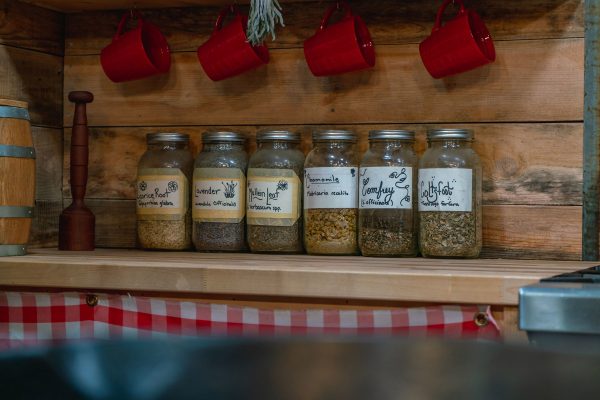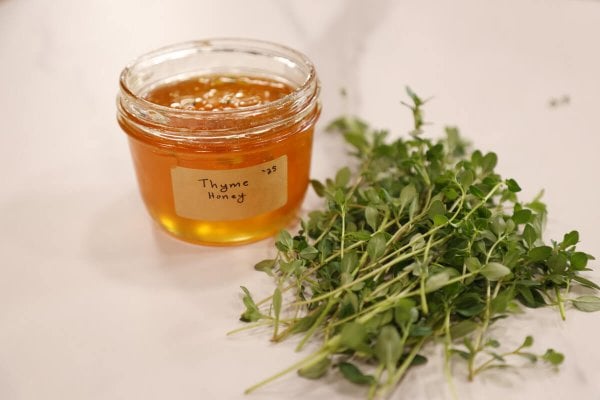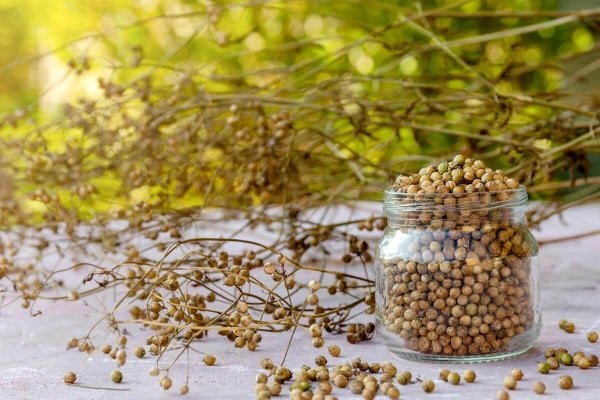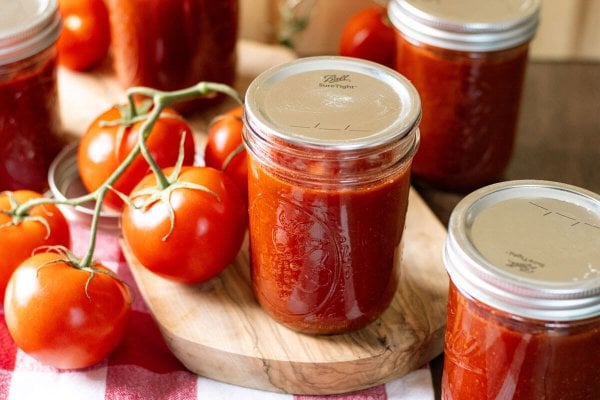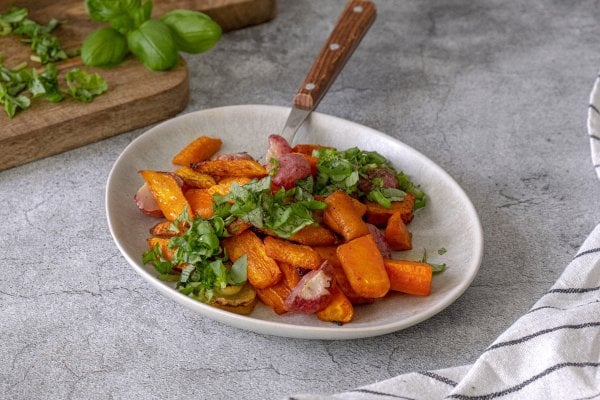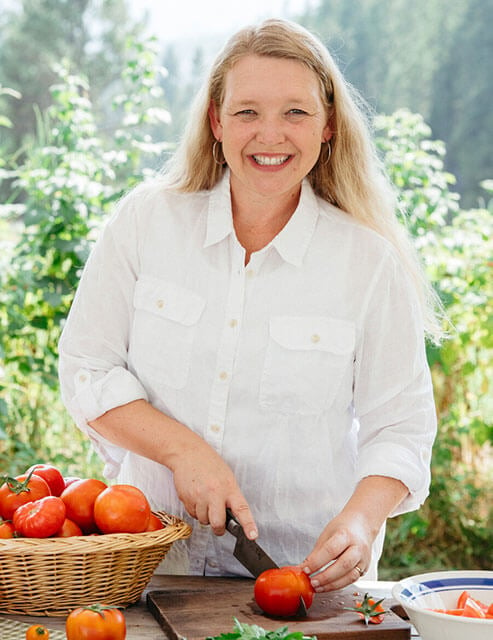So many people want to homestead, yet most think that it costs money (money they may not have). So the question begs, “How do you homestead with no money?” There are so many ways to homestead on a budget. Just like the seasons are separated into four groups, so are the four musts you should do when homesteading on a budget.
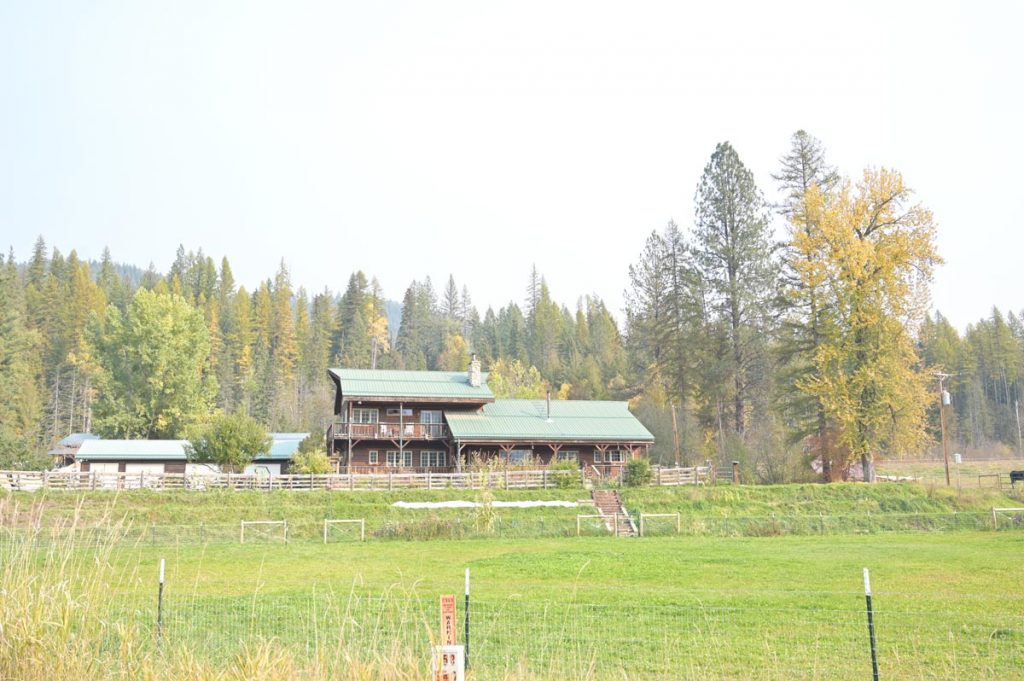
So how do you start a homestead when you’re broke? In this post and video, we’ll be discussing the four things you must do to start homesteading while on a budget, or as we say, with no money.
For more ideas, check out this post on how to start homesteading, how to buy a homestead, and these posts on ten things to know before you start homesteading and seven reasons why you should homestead this year.
Why I Love Homesteading On a Budget
We love that even though homesteading can initially seem very expensive, getting started is not. You can start homesteading with no money because you can begin right where you are!
There are simple skills you can start learning now that will make homesteading a reality. So many people think homesteading means acquiring a large portion of land, getting livestock, growing a huge garden, etc. But all these things start with learning the skills. And you can do that with zero money and a library card (or access to the internet).
This is called learning while you wait. Just because you don’t yet have a homestead, doesn’t mean there isn’t anything you can do to be proactive.
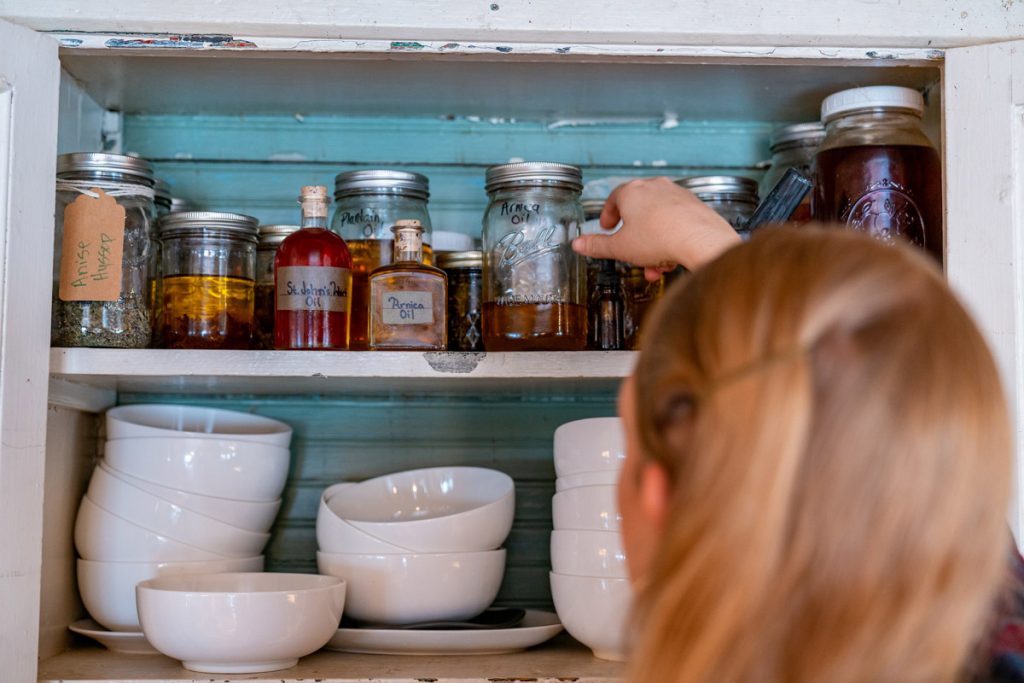
Free Training
In fact, because we know many of you want to learn more homesteading skills, we have a handful of free video training workshops that will help you build your homesteading skills right where you are.
Here are a few to begin with:
- Healthy Healing at Home – This free training will give you the confidence to use homemade herbal remedies, which herbs are right for your condition, the safe herbs to use on your family, and beginning to stock your herbal medicine cabinet.
- Bread Making Workshop – Learn to make light, fluffy, and sliceable bread (that’s also healthy and nourishes the body) by learning the essential techniques for bread making.
- Meals on Your Shelf – Confidently fill your shelves with safe, healthy, home-canned meals. In this course you’ll learn the basics of canning and will make eight jars of your own convenience meals right along with me.
- Fearless Fermenting Workshop – Learn how to make delicious, healthy and probiotic-rich vegetable ferments! In this video workshop, you will learn the five rules of vegetable fermentation to make amazing ferments every time! Plus how to store your ferments without taking up valuable refrigerator space.
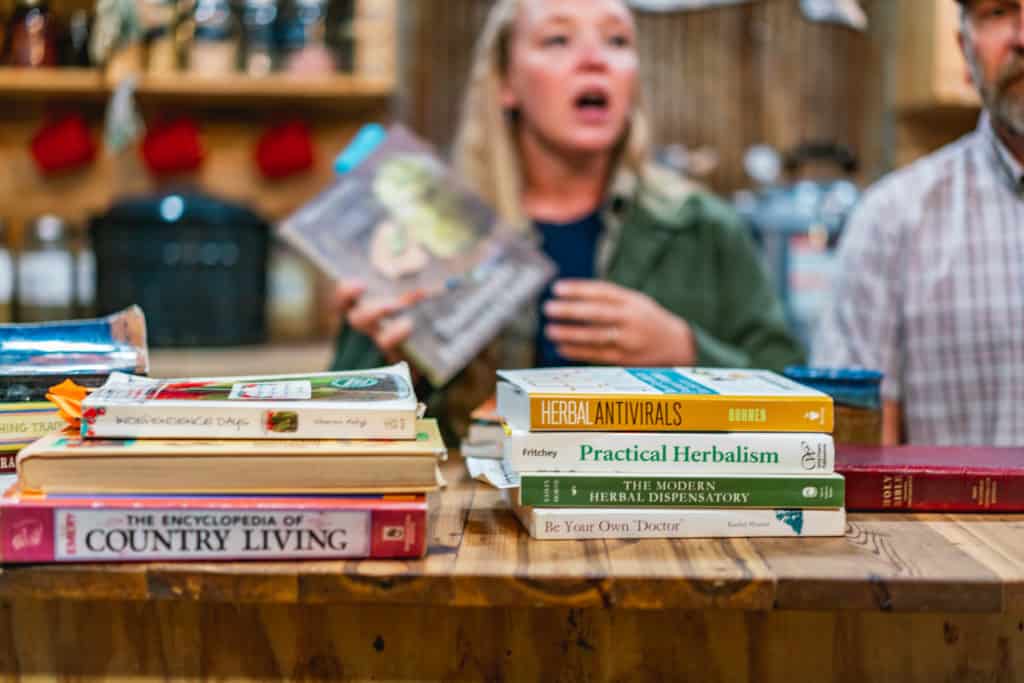
Start Where You Are and With What You Have
By investing your time while you wait into learning skills, you may be surprised that this can actually save you costly mistakes down the road.
It’s never a good idea to invest a lot of money into something you’re not properly trained for. For example, if you want to raise backyard egg-laying chickens and you order chicks, but don’t have the infrastructure (like a brooder) set up when they show up at the post office, you may end up losing that entire flock of chicks and your cost investment.
Furthermore, without knowing and understanding permaculture design and setting up zones for your homestead, you may invest money into fences or gardens that weren’t thought out well and need to be moved later on.
A significant money loss like this can slow you down and discourage you. When you’re investing a little here and there (or not making investments at all, but just furthering your learning), these failures will be minor with very little setback, if any.
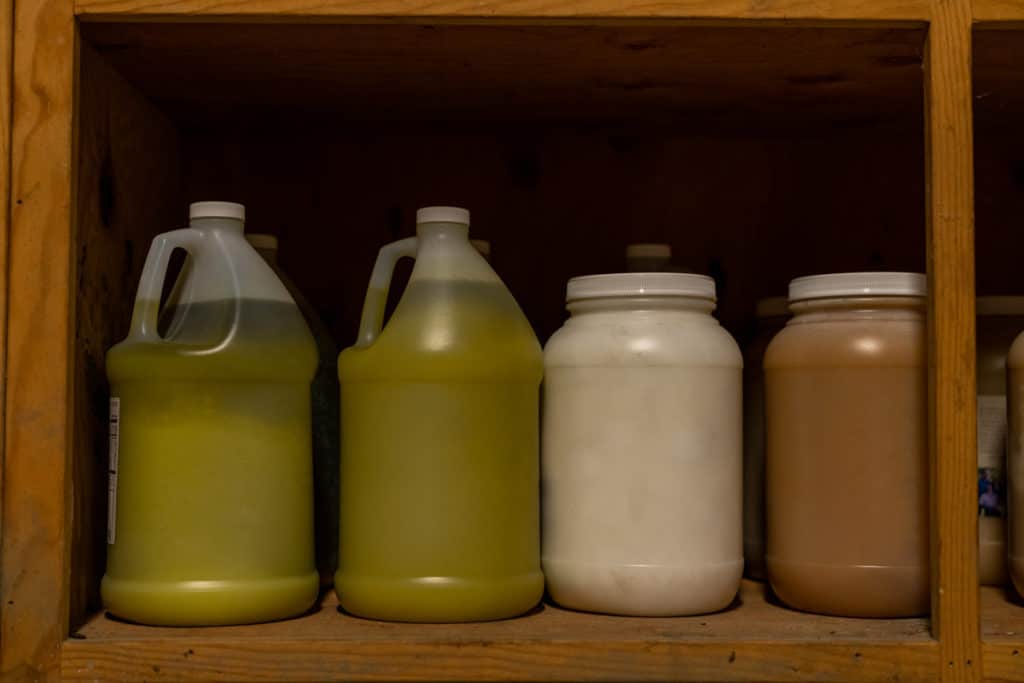
In the Kitchen
Kitchen skills are one of the best places to start. Sure, you may not think of kitchen skills as homesteading skills, but they really are! This is where some of the largest cost savings can happen by knowing how to prepare and preserve the foods you’ll be growing and raising.
In the kitchen is where you will see the actual health benefits and savings from doing things you will do on your homestead.
Here are some ways to start:
- Start buying foods that only have one ingredient (in other words, whole foods).
- Think twice about buying foods with ingredients that you can’t pronounce.
- Start learning to cook from scratch. Look at the foods you already buy and figure out if you can make them yourself (try this brownie mix in a jar, this cookie mix in a jar, this cobbler in a jar, or the homemade bread course mentioned above).
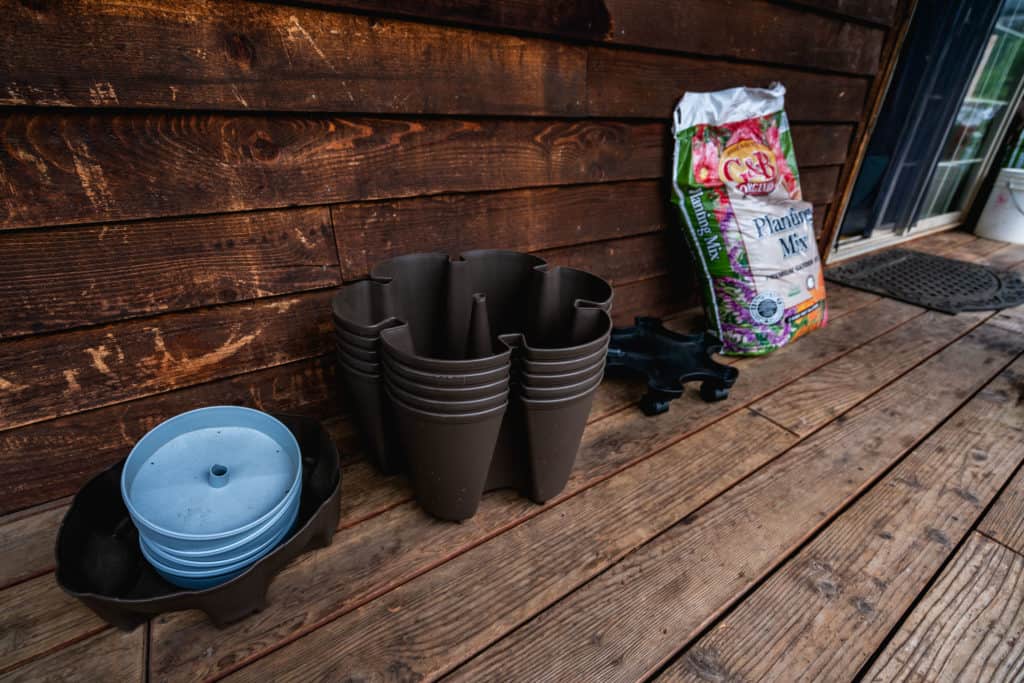
Gardening
Instead of jumping into an entire garden, how about starting with a few potted plants outside, in your yard or on your balcony? Plant a few types of vegetables that you like to eat, such as lettuce and tomatoes. See what it takes to grow them.
You can try this instant garden if you have a small space in your yard, or you can even grow vertically with something like a Greenstalk Vertical Garden. Try growing perennial plants, like strawberries, in containers by learning how to winterize plants in pots.
When it comes to gardening, most of the learning is in the doing, so starting on a small scale will teach you a great deal for when you’re ready to jump in with an entire garden.
Have clear goals about what homesteading means to you and what you want to accomplish. Accomplish these goals by starting small, and learning the skills needed to accomplish those goals.
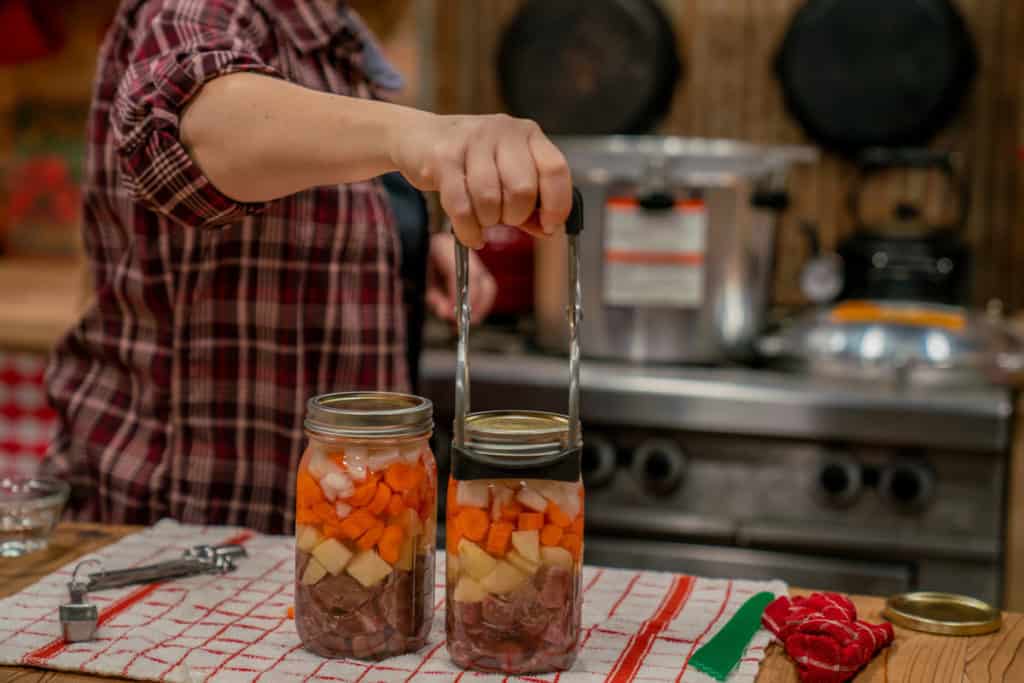
Learn The Necessary Skills First
Many skills are needed when running a homestead. The obvious skills are cooking, preserving, gardening, and building and mending.
- Cooking Skills – As mentioned above, you’ll want to dial in your cooking-from-scratch skills. Teach yourself how to make delicious no-knead bread, make homemade bone broth, and then learn how to can that bone broth.
- Preserving Skills – Start slow with your preserving skills and layer on one at a time. One of the easiest preservation methods is dehydrating. Learn to dehydrate fruit leather (you can even use your oven, no special equipment is required!) From there move into these preservation methods: Root Cellaring, Fermentation, and Canning.
- Gardening Skills – Start with planting in small pots so you can see how to use seeds and soil. Grow foods you love to eat so you’ll be more motivated to tend to those crops. See how it goes, learn to troubleshoot, and learn by doing. Homesteading Hack: Learn how to use a garden planner to take the guesswork out of gardening. Once you know your first and last frost dates, a garden planner is one of our favorite gardening resources. We recommend using Clyde’s Garden Planner (use code “homesteadingfamily.com” at checkout to save 10%).
- Building Skills – Do you know how to build a fence? Do you know how to build a barn? Probably not, but most builders don’t know how to build these structures when they first start either. Find a small project to build your skills. Maybe a small pet enclosure for your homestead dog, or a raised bed for your garden space. Practice, see what building skills you have, and what skills you could improve on. A great way to save costs is to use recycled material when building.
- Mending Skills – One way to get in a financial bind quickly is to hire out everything that needs mending on the homestead. There will be plenty of projects, plenty of errors, and plenty of items that need mending. If you’re hiring this out each time, your homestead will become cost-prohibitive very quickly. By learning the skills needed to mend a fence, fix a leaky pipe, or even run some water lines to the garden will save quite a bit of money.

Change the Money Cycle
As so many people say they can’t afford to homestead, what they are really saying is that their money is being used elsewhere.
For instance, if you eat out four times a month, why not eat out once, take the money you save from the other three meals, and buy some non-perishable food to start building up your pantry and bulk food supply?
If you take inventory of where your money is going, chances are you’ll discover areas where you can change the cycle of that money. Going without your morning latte from the coffee shop could equate to having a garden seed and supplies fund.
You may need to reallocate your money to move forward in your homesteading goals faster.
- Start buying bulk – When you buy in bulk, you will save money. Sure this means a larger purchase upfront, but your per-serving cost will be much less. Buy your flour and yeast in bulk instead of buying loaves of bread. Instead of buying one jar of pasta sauce, how about buying a case? If you know your family loves pasta, buy it in bulk and start building up your long-term food supply.
- Buy through farmers’ markets – Shopping at farmer’s markets can help you save money if done correctly. Not all farmer’s markets are created equal and some farmers don’t sell their produce for less than the grocery store prices. Knowing the average price of the foods you like to buy and comparing them to the farmer’s market is an important step. Many markets also sell what are called “seconds” or “#2s”, but these aren’t always advertised. These are the items that aren’t pretty enough to sell in the produce section but are perfectly fine for eating or preserving.
- Use homemade cleaning supplies – All you need to clean nearly every area of your home is vinegar, baking soda, and dish soap. Here is a great homemade all-purpose cleaning powder recipe to get you started.
- Only buy things you can afford – There is no need to spend thousands of dollars on a top-of-the-line dehydrator if you still need to learn how to dehydrate food. Once you have tried other ways of dehydrating, and know this is a method of food preservation you enjoy, you may find an investment like this will be worth it. You can also check Facebook Marketplace, eBay, or Craigslist for these more expensive items.
- Sell some of your products – After mastering homemade bread, maybe you could start baking bread to sell to earn a little money. Use this extra money for the other things you want to buy for your homesteading lifestyle.
Be intentional, but don’t get caught up in the romance or novelty of homesteading. Homesteading is a lot of work and comes with many rewards. Still, many get caught up in the good feeling of what homesteading will be like, instead of embracing the very disciplines and routines it entails.
Keep reading for some essential routines when homesteading.
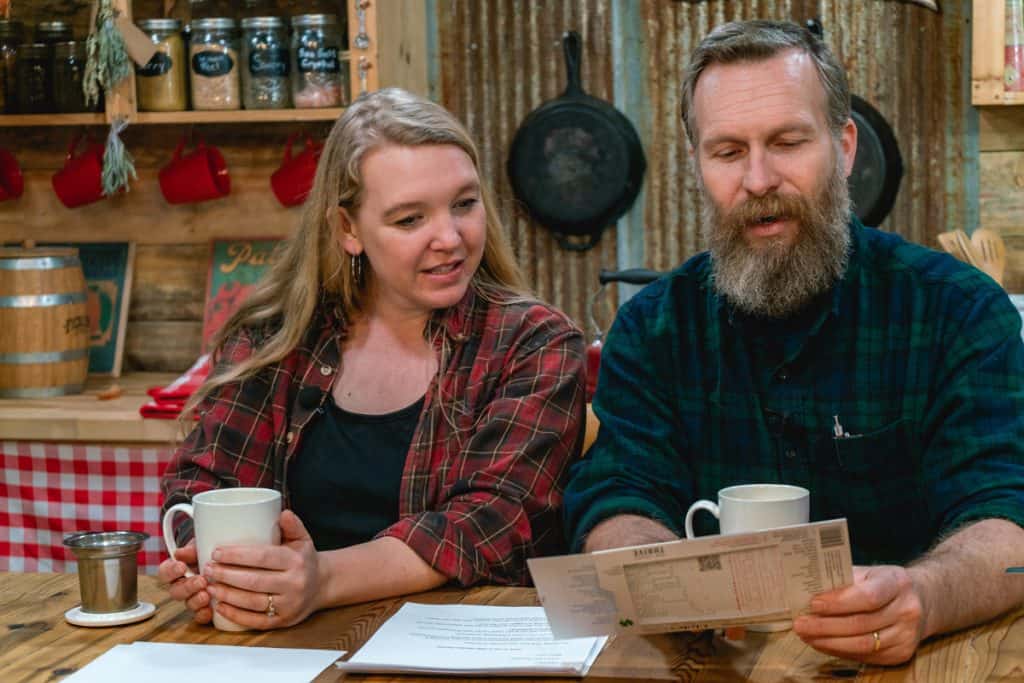
Homesteading Routines
Auditing and Record Keeping
Looking at cost versus benefits when it comes to homesteading decisions is essential. After tackling a homesteading project, ask yourself how much energy it took. How did it work out for you? How much did it cost versus how much time you spent?
Implement ways to measure your success. A perfect way to do this is to audit your time, your energy, and your money, to see what goes in and what goes out.
- Create a budget – Once your budget is created, execute that budget, and record every area to see what was necessary, what can be cut out, and what needs to be added in.
- Evaluate your time – Look at your day. What tasks take up most of your time? See what you can cut back on to focus on building your homesteading skills more efficiently.
- Manage your energy – What areas of your life are taking the most energy? Is that energy being used to further your goals? Could that energy be spent better elsewhere?
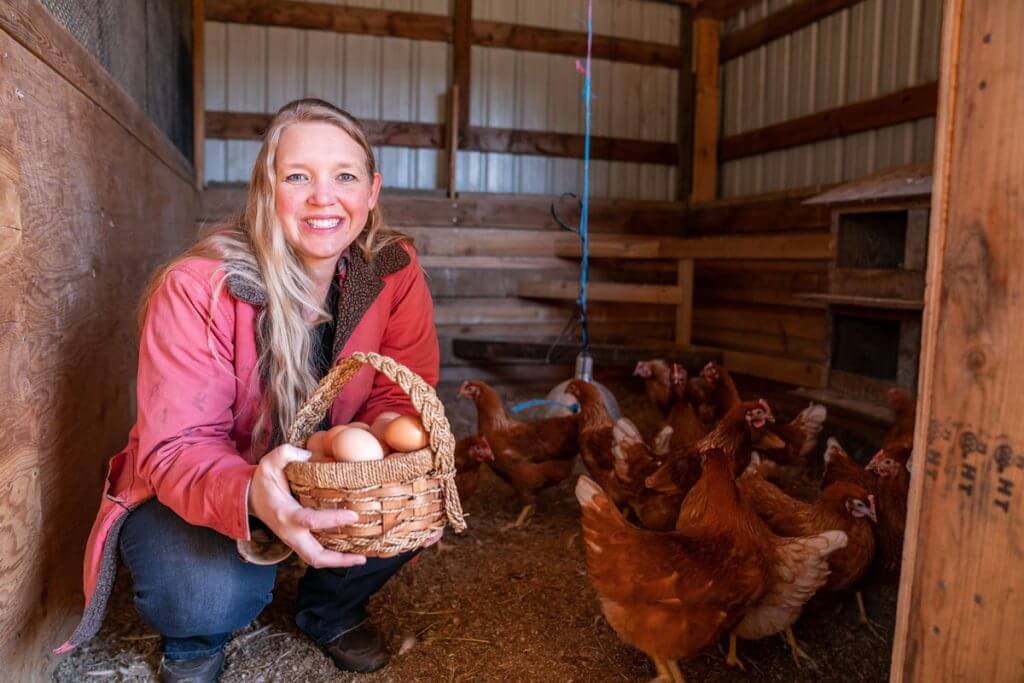
Working With Others
Don’t try to do it all by yourself when you first start on your homesteading adventure. Work with others! There is a vast homesteading community that would love to help and is full of fantastic ideas to help you along your way.
- Get together with others – Go in on a bulk buy or join a community garden. Look for opportunities to share what you are doing with others. Glean from those with more experience. You will learn so much this way.
- Barter – Once you start producing on the homestead, find ways to trade what you have for what someone else has. Money is not the only currency in the homesteading world. Many people barter. Trade some fresh baked bread for raw milk or farm fresh eggs. Trade your time for some tomato starts. Get creative!
- Seed Swap – Learn to save seeds and then ask around for a seed swap in your area. Many times in the spring the local Farmer’s Market will have seeds for sale (or for free!). Even buying seeds from someone local can mean they’ll cost less. You’ll also know where your food is coming from, and you can try out new varieties.
- Get your family involved – Now is the time to start getting your family learning these new homesteading skills with you.
Start actually living the life you desire on a homestead. This is excellent preparation and you will quickly discover what you know, and what you need to learn.
Keep going. Don’t give up. Consistency is vital. Keep asking yourself, “What am I trying to get out of this lifestyle?” Then make your goals and take action.











